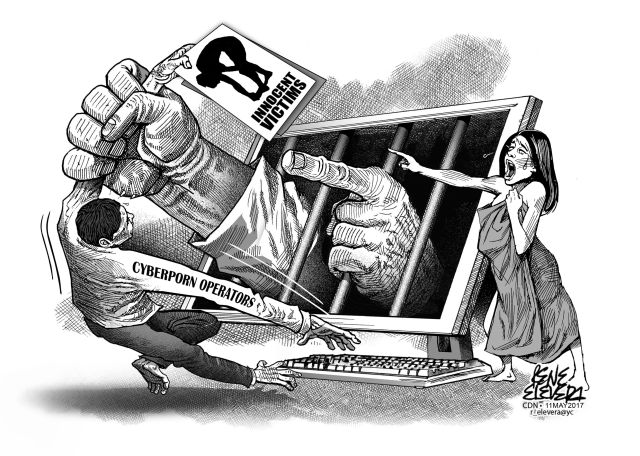
What do the rising number of teenage pregnancies, online sexual extortion and cyberpornography cases have in common?
They all involve youths, mostly underage and female, who are victimized by sexual predators either old enough to be their grandparent or as young as they are or even younger.
They also involve the use of online and social media as an instrument to prey on unsuspecting victims either through forced or willing cooperation from the victims or their loved ones.
In an interview, Cebu Vice Gov. Agnes Magpale cited the case of a barely 12-year-old girl who supposedly got pregnant after being raped by a boy who happened to be her neighbor.
The vice governor blamed the incident on the increasing access by children to the internet and its dark adult content through the piso-piso internet cafés that are oftentimes open 24/7 in Cebu province’s towns and cities.
While the parents are chiefly to blame for allowing their children to access adult content on the internet, there are local laws and ordinances that prohibit internet cafés from allowing children to use computers during class hours and late in the evening.
Sadly, this isn’t enforced by the owners of these internet cafés who prefer to earn profit in any way they can, and they simply don’t have the heart nor the inclination to stop kids from dumping coins in their piso-piso internet computers so they can play games or peruse through adult content of a sexual nature when no one else except their friends are looking.
That, aside from pressure and erroneous information on sexual activities from their peers, lead underaged youths, even children, to engage in premarital intercourse that leads to pregnancies.
When they’re not ogling at adult sexual content, the more “enterprising” use of social media like Facebook is to engage in so-called sextortion activities like 18-year-old computer technology student Ronald Ecaro of Cabanatuan City.
Ecaro is under investigation for supposedly threatening to post online the nude photos of his victims in exchange for cash. In the case of his latest victim, an 18-year-old girl, Ecaro is said to have accessed her Facebook account through her cell phone number and reset the password to gain access to her private photos.
Then there is also the case of Australian David Timothy Deakin whose arrest on charges of human trafficking in Mabalacat town, Pampanga province, recall only too painfully well the incidence of cyberpornography cases in Cordova town, Cebu.
All these incidents point to one thing: unless supervised and regulated, the easy access of children to the internet and all available forms of online and social media can shape for the better or worse their attitude and character towards their fellow human beings.